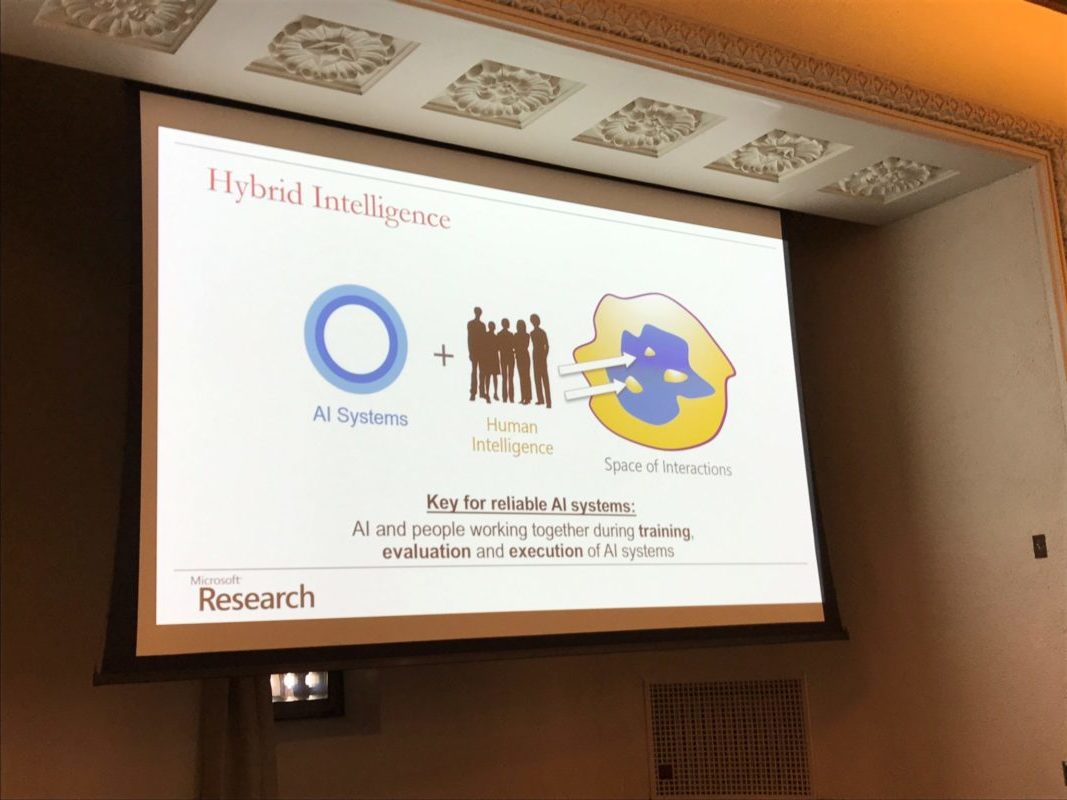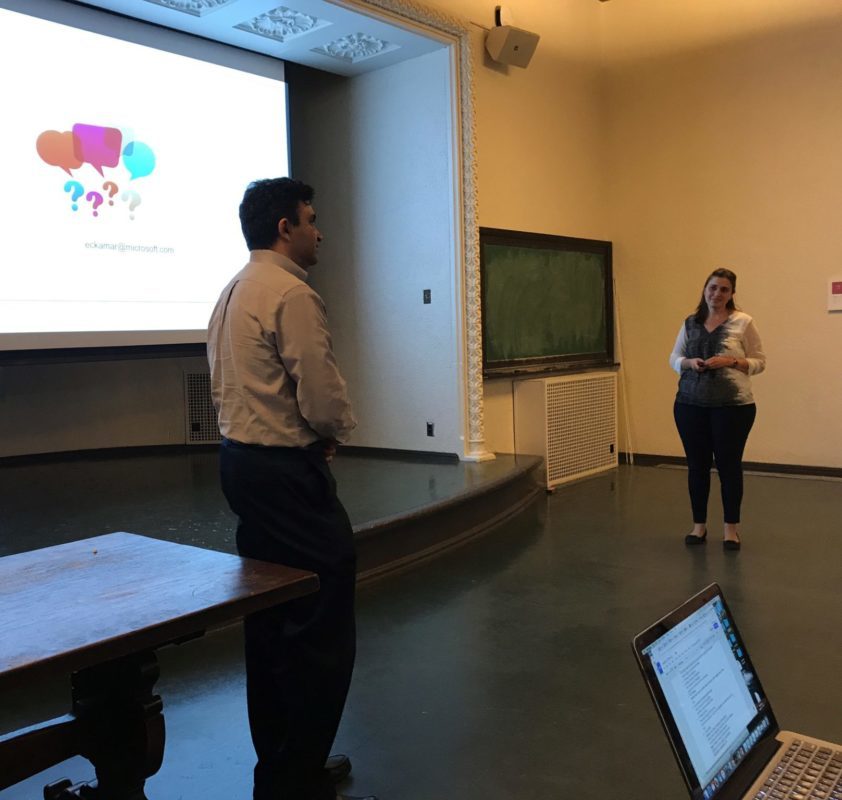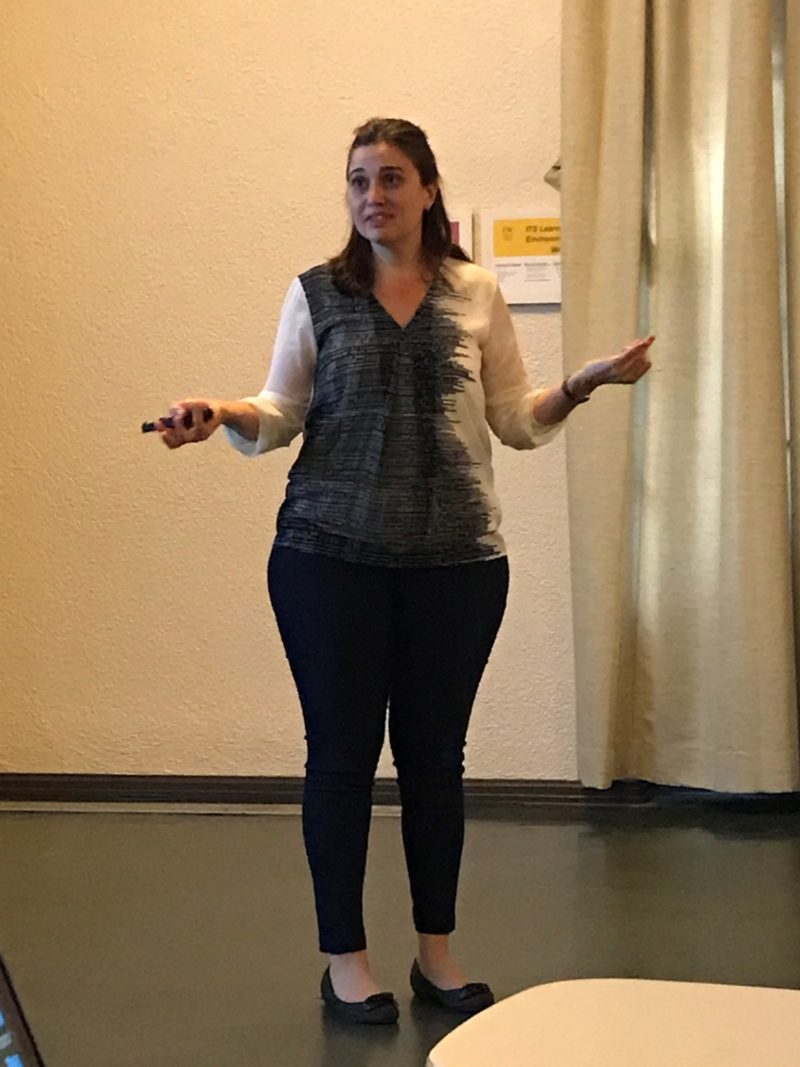


Dr. Ece Kamar, a senior researcher at Microsoft Research, argued in favor of using artificial intelligence systems in partnership with the skills of human beings to resolve problems in AI technology. Dr. Kamar explained that in real world scenarios, such as the accountability of self-driving cars, it is imperative that we use humans as a form of correctors to prevent machines from doing terrible things in the world. She explained that having the accountability of human supervision contributes to bettering the learning process of AI systems and the way the data is understood and executed in practice. Dr. Kamar further clarified that real world concepts often are misinterpreted in training data. Thus, although algorithms can be used to find “soft spots” in the training data (i.e. common patterns of error), humans are still needed to label and troubleshoot these issues. The ultimate challenge is to find the best possible fix for these technologies, identifying where to invest development efforts for the largest impact within a limited timeframe. In the end, Dr. Kamar stressed that this isn’t the only troubleshooting method for AI available, however, our job does not finish with merely creating an AI system. Instead, the solutions lie in focusing on a combination of algorithms, users, and system designers to ensure reliability, trust, and ethical conduct in the use of AI.



